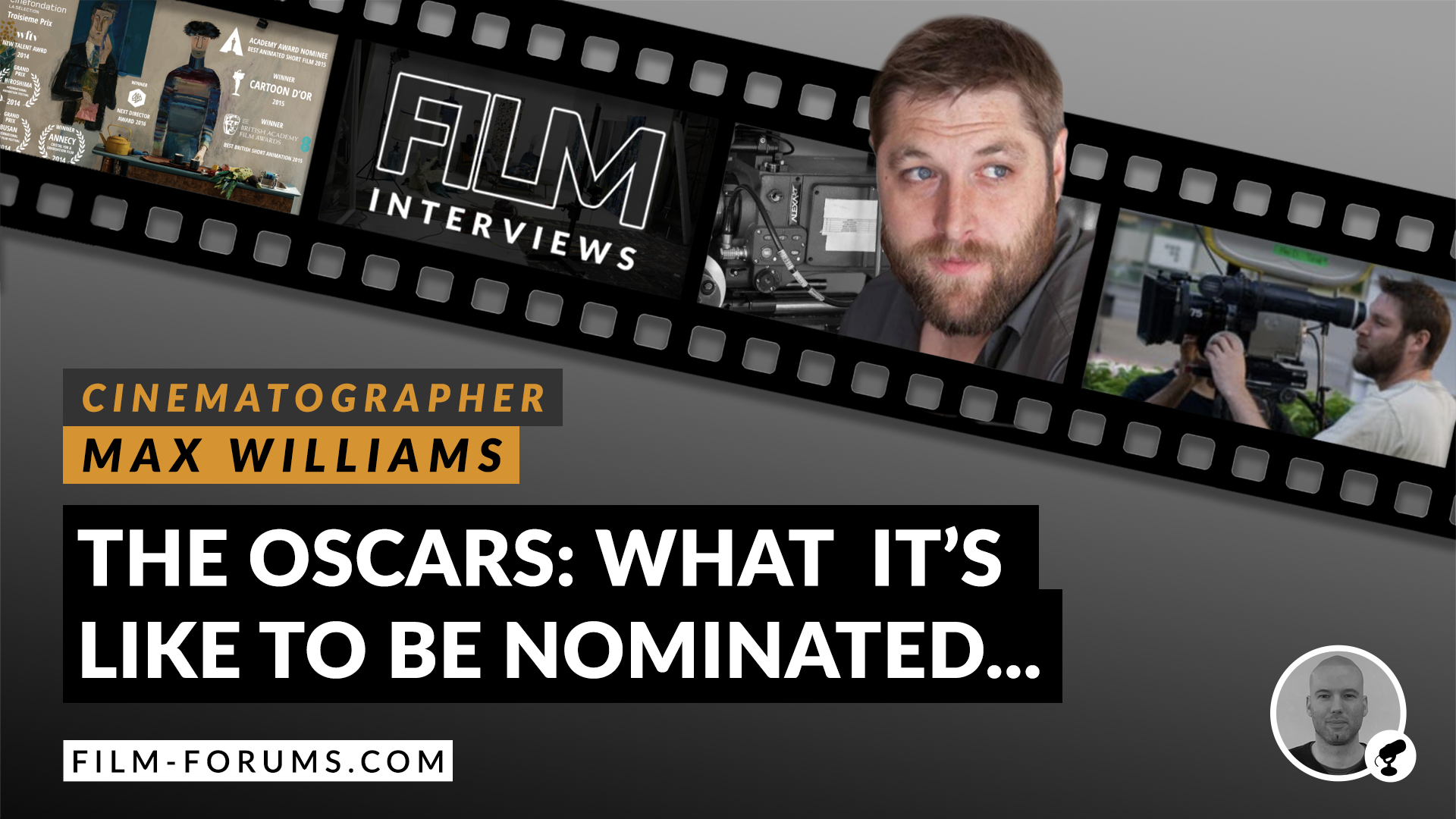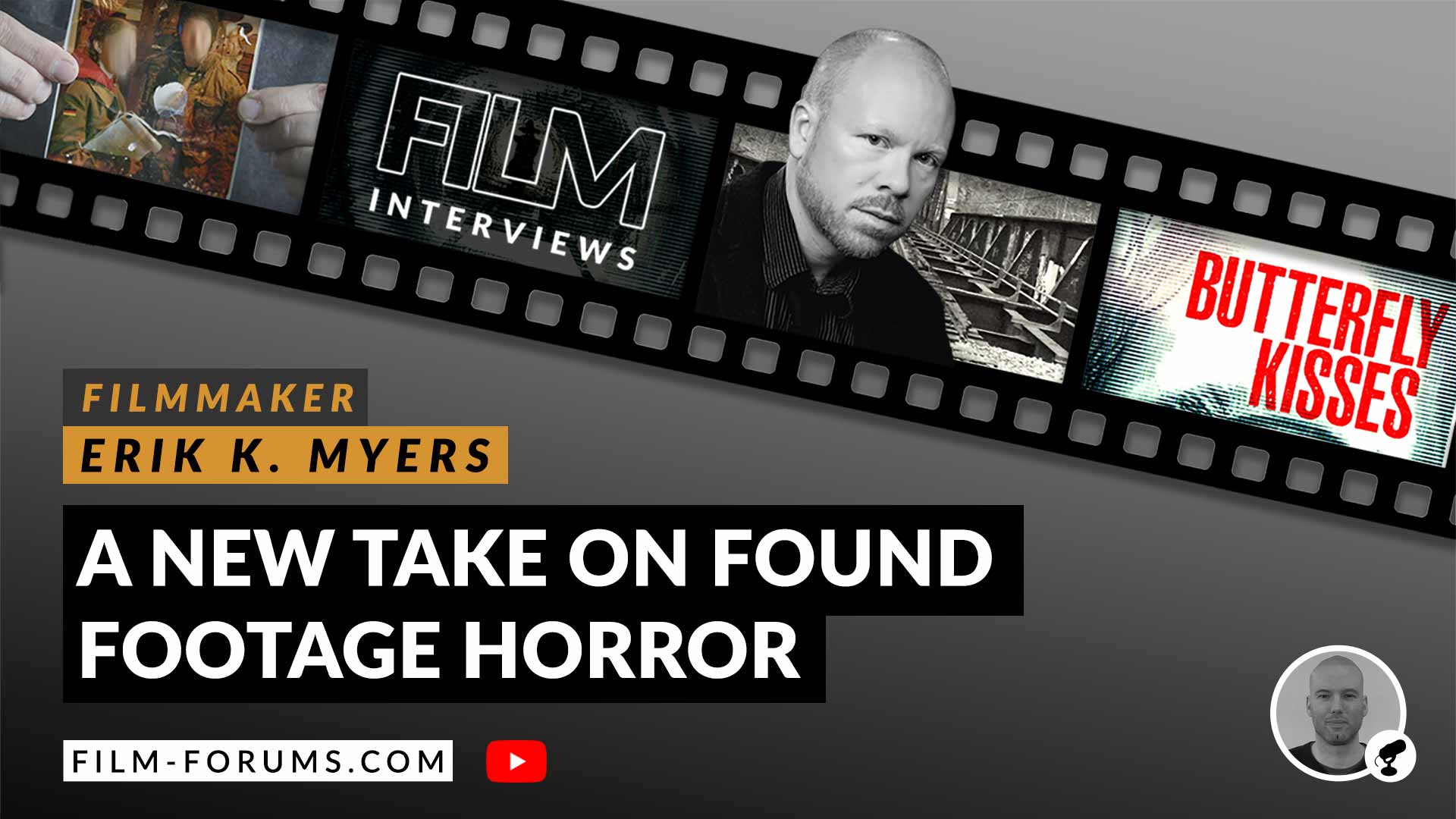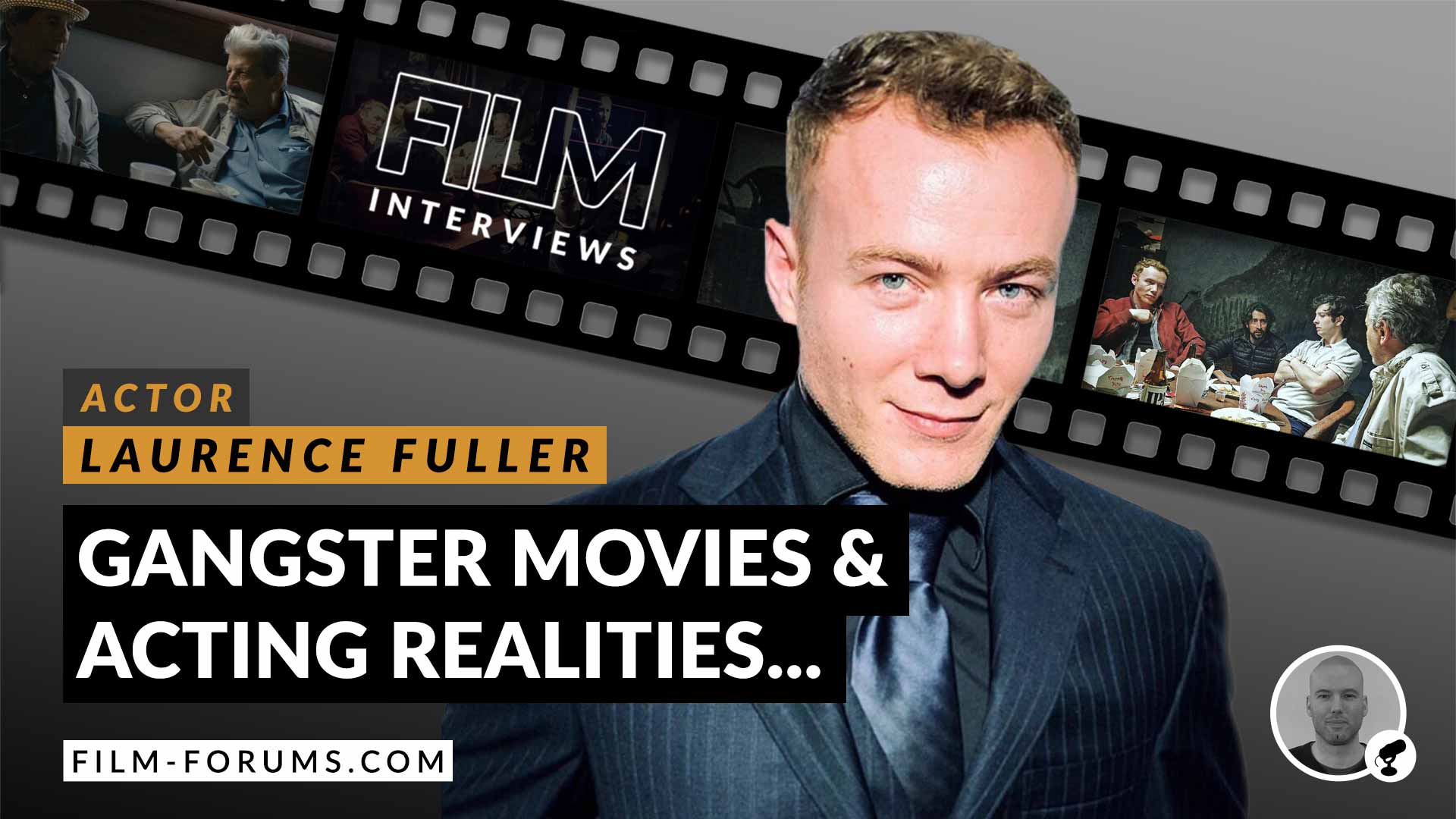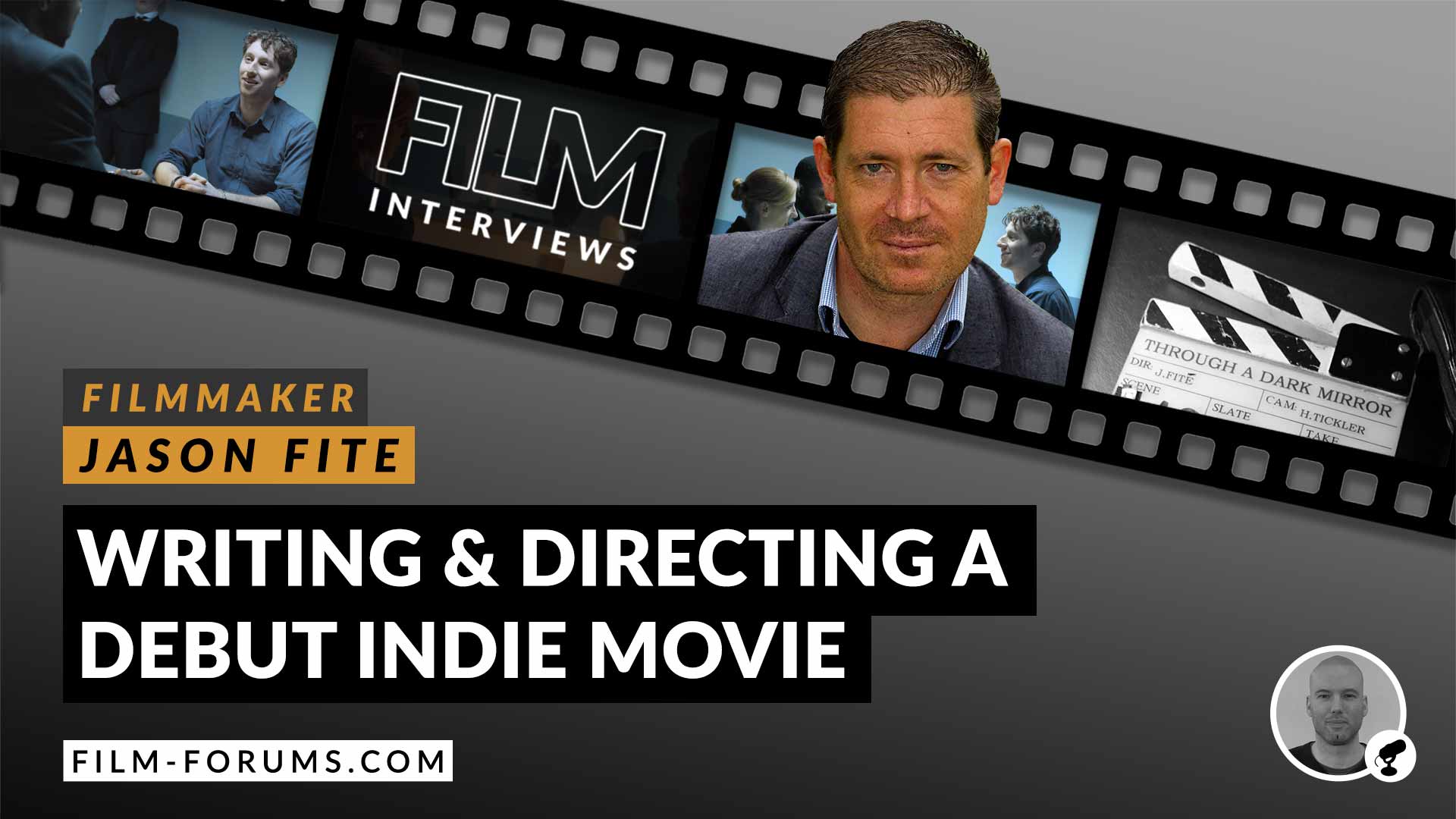Lauren McCann, actor, and the writer and director of Girl Boxer (2019), discusses the fine lines of morality in life and film with presenter and actress, Aiysha Jebali. Lauren wrote the gritty series’ proof of concept which explores the ethics of when it may be tempting to take a life and whether or not extenuating circumstances make a difference. ‘Girl Boxer’ tells the fascinating story of a struggling single-mother lured into the underground boxing ring by the Irish mob – however – the real question is, why her?

Lauren McCann starring in Girl Boxer (2019)
From teaching to creating – finding an outlet
FF: Did you do acting as your main career before you decided to make this film?
LM: Not at all. I was a kindergarten teacher, and I taught early childhood education – I actually have a PhD in education. I’m Canadian, so when we came to the United States, my husband is from Poland, so his visa didn’t pass to me.
I wasn’t able to work, even though I’m very qualified to teach. I used to be an actor in Canada, so I thought, ‘Wow, maybe this is something I can do again’, so I started since I couldn’t work. I needed to have some kind of creative outlet, so I started doing acting classes again, and realised that this was something I loved and I think I’m pretty good at. It just started from there, and once they got my my green card, I got an agent in a day and-
FF: Wow, a day!
LM: Literally, I was at a photographer’s studio, getting some headshots, and she said, ‘I think you’re great. Do you have an agent?’ ‘No…’ ‘Call my friend!’ and I called, I literally went to the office that day, because I had a babysitter already planned out. ‘I’ll go meet your agent right now!’
I still had my hair and my makeup done from the photo shoot for my headshots, and he says, ‘I think you’re a whippersnapper. You’re great. I’ll sign you.’ And I got a legit agent in New York City in a day.
FF: Amazing. You really have to fight long and hard to get that. I just got one the other day.
LM: Congratulations.
FF: Yeah, I think I’m a tiny bit jealous over here.
LM: Well, it has been just so weird. I had to really do my research on them, like, is this real? Because these things don’t really happen.
Early work and making connections – getting to know your future colleagues
FF: Did you do quite a few parts in New York before you decided to make Girl Boxer?
LM: A few. I really decided to take acting seriously, I would say, three years ago. But during that time, I had a second child. I did quite a lot of indie films, which is really cool. And being able to do that allows you to meet the people, sort of in the indie film community, which helped me cast Girl Boxer. And now people know me a little bit more, and instead of even auditioning for a lot of indie projects, I just get, ‘Hey, Lauren, do you want to come do this project?’ ‘I’m there.’
FF: Yeah. I mean, it’s good, because they already know what you can do, and that’s a really good thing about networking through filmmaking, because you do get called back and you get recommended for other projects and things like that, so it’s great to start making those connections. I also do quite a lot of Inde and I love it.
LM: You meet good people, people are there a lot of the time for the project, if you’re not necessarily getting paid a lot, you’re there by choice, by want, not necessarily just for a paycheck.
FF: Back in Canada, when you did some acting and things like that, were you also writing and directing back then? Or is this your first venture?
LM: This is my first venture, this is the first first first. I had the idea going in my mind for quite a long time, but I never took the time to actually write it down. And I think back and I wonder why, and the answer was I didn’t know how it was going to end. I didn’t have all the answers.
I had a moment where I kind of allowed myself to not know and to not have the answers and to just write. My son was very young at the time, maybe three or four months, so he was napping twice a day for an hour and a half each, and so that’s the time that I had! I literally sat down and for that hour and a half just WHOOSH! I just let it all kind of come out, and that’s how I did a first draft!

FF: Fantastic, so did you have some people that looked over it for you and things like that? Some people that were already in industry?
LM: Yeah I mean I’ve been very fortunate. I’ve had a lot of people kind of in my corner helping me through this. A man named Jordan Ancel if you want to check him out, he’s kind of a life coach, but he is also in the film industry as a producer or a director himself. He used to be an actor. He’s involved with higher media education. And yeah, he’s always sort of just supported me and looked at the work that I’ve done and we’ve had dialogues about it.
The inspiration for Girl Boxer, physique and film
FF: So what actually inspired this story? Because I love it. For me, I know Richard kind of touched on it with you, I come from that kind of fighters’ background as well. Not Boxing, I did Kickboxing, Tang Soo Do, and then MMA. So I have a huge appreciation for anything in the physical arts, to be honest. But also, from a writing perspective, the story is just captivating, and at the end, I was screaming, ‘Where’s the rest?’ People tell me this is a teaser for the feature, I need to see a feature of this!
LM: Well the idea is this is really a proof of concept for more. I’ve planned out an eight episode season for a series, but I’m now thinking – just because I just love these characters so much and I love the story so much – of also just writing out the feature… if not for me, maybe possibly for somebody else. So yes, there is a lot more.
FF: I’m so glad to hear that genuinely. Because I was like, this can’t be it, I’m not done!
LM: It gets good. I mean, the reason why I really put the story together was as an actor, I was always going in to play these roles that were very… self submitting, as you would know, probably on your side too. I’m a mother, I’m a kindergarten teacher, so those are the roles that I would put myself in for. Because you know what, they’re so easy I don’t even have to think.
Then I had somebody in casting say to me, you don’t look like a soccer mom. You know, you look like you could cause some damage if you really need to. And I’ve come to sort of own that and learn the art of stillness and intensity. What kind of roles could I bring these two aspects of myself to? This really grounded loving mother, but also this real fighter?
Everybody has that little part in them: When would you kill somebody? Well, if you really did screw with my kids… it’s out of love. And I always go to these evil characters out of love. And that’s a theme throughout this whole thing. How far are you willing to go? If it’s for love is it okay?
FF: Yeah, I totally understand that. Tell us about your writing history.
LM: Well, it really started probably when I was about seven. My father is obsessed with fighting movies, and when I was about seven, he sat me down to watch Rocky with him. It was gonna be our movie. It really started with that, I love fighting movies, and then I myself went to Thailand… God, I’m ageing myself, that was maybe about 15 years ago now.
I went and watched real Muay Thai, not the tourist stuff that they set up on the beach, I was behind a cage – I just fell in love with it. I absolutely loved it, and then I saw Sumo in Japan and I was obsessed with that too! When we got back home, we ended up moving from Montreal to Arizona, which is a whole other story. But I found myself in a place where I didn’t really mix very well with the people that were there.
I was writing my dissertation, it was quite a lonely thing and I needed to get out. The closest thing to me was a gym, and it was a Joe’s gym for $99 for the year, and it happened to be a boxing gym. I was one of the only women there and I was training five days a week, I was doing an hour of technical boxing training an hour and a half conditioning five days a week.
FF: You must have been in good shape.
LM: I was, oh my God, I’ve never been in shape like that. But then I found out I was pregnant with my daughter so I stopped. I was getting ready to actually get in the ring and do some fights. But I remember the doctor telling me at one point ‘Oh my gosh, you’ve gained so much weight with your baby.’ I realise, to her, after I came to you after doing all this training, I’d never been in shape like that. I probably weighed the same that I did when I was 14 or something! So once I stopped doing it I obviously wasn’t as in shape after.
FF: Well having a baby can completely change your body. When I saw you in the film I couldn’t believe you’d have two children. I was like ‘this is not the same person.’ You definitely snap back that’s for damn sure.
LM: Yeah, I laughed at it. I became a long distance runner because my kids stay in shape now. I can’t get to the boxing gym anymore, they just don’t have babysitters.
FF: So you wanted to kind of combine those two things anyway, the technical side of you and also your acting. Was there also part of it where you really wanted to create your own work?
LM: Absolutely, because those kind of roles don’t come up too often. That you have this caring, loving badass essentially. Yeah, I definitely wanted to play the role that I wanted to play and see the show that I would want to watch. I’m a huge Guy Ritchie fan, that sort of quick cerebral darkness to it, and you don’t see too many women in those roles or in those movies. It’s a boy’s club, a lot of the time.
FF: Too many damsels in distress, I think.
LM: Exactly.

Strong women, both metaphorically and literally, making for good characters
FF: Yours is not that, and that’s what I love, because so many women are like that. In reality we know so many women like that, we’re out for a scrap, we’re not fearful in that sense. Or we’re not going to be, I don’t know, if if I’m in a club or something like that, if someone is annoying me, they should know that they’re annoying, just by the way that you kind of carry yourself.
You don’t even need to do anything a lot of the time. Whereas I think in films, a lot of the time a man has to stand up and sort things out, and I think that it’s really really cool to see more roles popping up that are like that. Because for me that would be my dream. My favourite genre is action. One of my favourite hobbies is martial arts.
LM: I could totally see you being John Wick. I always say we need to have a Jane Wick.
FF: That’s the thing. I don’t think people see me as that because I’m so small, I’m five foot one. I’m tiny, I’m small and I’m slim and everything like that. So I’m good for victim roles, because I can also take the hit. I’ve had some stunt training as well. But what I want is that assassin role, a real badass role.
LM: Write your own!
FF: Well, that’s why I’m asking about it. Because I just found that so inspiring, seeing you act out your own work, which is really cool.
LM: It doesn’t have to be long if you’re an actor, you could write yourself a two-page scene. There are festivals that do micro shorts, and you can even apply to those, little clips into festivals and start getting your name around, start making those connections and doing some networking.
FF: Talking of film festivals that would be my next question, how did you approach your selection process for festivals? How did you choose which ones you wanted to enter? And what was your success rate?
LM: It’s so difficult, I’ve come to learn that festivals are a whole other beast. If they had a specific category for pilots, I did apply for that without really much question. Because I’ve had a lot of people say it’s not really a short, it ends and you go ‘Aaaah!’ and it doesn’t summarise things for you. And because of that it doesn’t fit nicely into a short film box. SeriesFest, which is a whole festival, one of the largest ones in North America at least, they call it the Sundance of television.
It’s a specific festival focusing on pilots, and that was on the top of my list. I was accepted, which was amazing, and I was offered a Jury Prize called The Voice to Watch’ which is really neat. It’s so sad that everything is virtual, last year, their closing ceremony I think John Legend, or maybe it was the year before Sia played.
You absolutely don’t know what each festival is looking for, what their programming or what their theme is for that year. I had one festival called HollyShorts, which is a very good festival, they actually took the time to write to me personally and say, ‘Your project is great… it just cannot fit in our programming now’.
They offered me a critique and what they liked about the project and people don’t necessarily do that very often. So that was a treat to hear directly from them. It’s strange, I get an award at one of the larger festivals out there, but then the little Brooklyn festival doesn’t accept the project. You grow sometimes to know not to take it personally. It’s just like going to auditions. My eyes were the wrong colour. Maybe it was two minutes too long, because it can’t fit in the block that they want.
FF: Yeah, film festivals seem to be a bit of a minefield, definitely. It’s something that I’m looking to focus on in these interviews, to find out really how it’s gone for filmmakers who have been accepted.
LM: It’s just too bad with all this virtual stuff. I’ve never really had a festival run, so this is all I know. People ask ‘how is this year different from previous years?’ I don’t know, this is all that I know, these virtual cocktail parties, which is just the strangest thing. I throw the kids in front of the TV and I drink a glass of wine with random strangers looking at their faces.
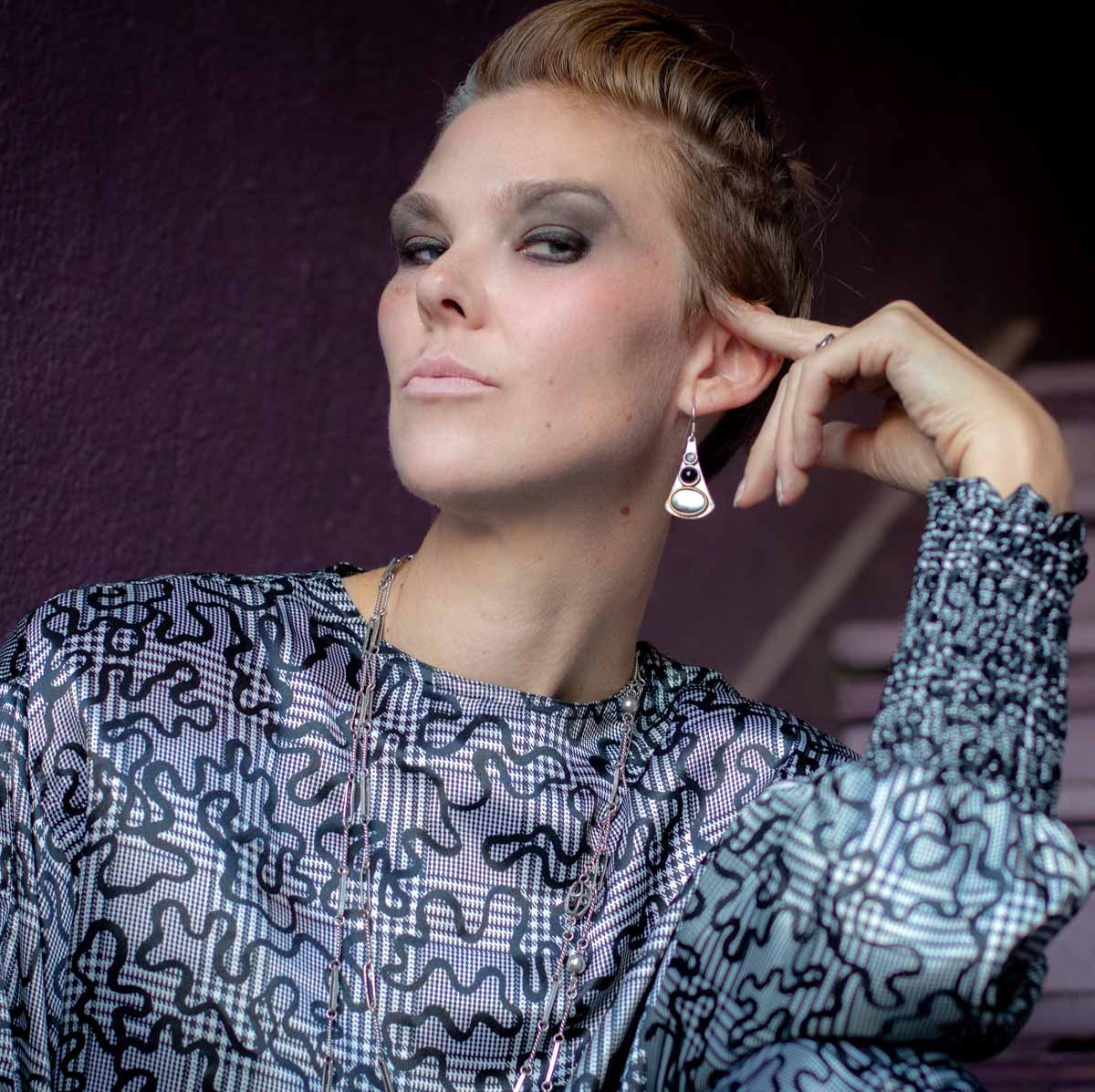
FF: That’s what’s been happening? Yeah. Basically a video call like this one but with some paper, right? That’s cool. That’s good to know. But less of a party when it’s in your own home. Right?
LM: Exactly.
FF: Which festivals were you accepted into?
LM: Recently, it’s actually been really quite busy. The Soho International Festival, Chelsea International Festival, they just finished. Those are kind of local New York festivals. It’ll be playing online. The good thing about online streaming, I guess, is that you don’t necessarily have to be in that corner of the world to watch it anymore. It’s available to anybody and everybody.
FF: I think some of them have been doing addresses as well via video conferencing and things like that. So it also means that you don’t have to physically go there as the filmmakers to still contribute something. That’s really interesting anyway, to hear about that. So what would your advice be to someone who had just made a short film and they weren’t sure what to do with it? What would you say would be the next steps?
LM: Definitely do your research, as far as choosing festivals. For me, I wanted to choose festivals that were reputable. There are so many festivals, so many that it could be daunting, and it could be expensive. So you want to go for the ones that have a track record, that have been around for… 10 years? 15 years? And then talk to the people, for me it’s the indie film community here.
Which festivals have YOU been on that have been successful? It’s hard when you look at reviews, because everybody’s gonna write a good review. They don’t want to be blacklisted, they don’t want to be that one person who’s like ‘Oh, we’re not going to invite Lauren again, she said something wrong about our programme.’ So really just word of mouth, and then some of the festivals are qualifiers for major awards. Those are a whole other level, but those are obviously good ones.
FilmFreeway as an avenue for advertising
FF: I notice also, because I’ve been on Film Freeway quite a lot recently, because I wrote a script, and I’ve been entering it into film festivals, as a micro short script. But I’ve noticed there’s a huge price difference with festivals in the US versus, for example, the UK. I don’t know if you’ve noticed that as well, or even other parts of the world?I think America, even if it’s a smaller festival or a new festival, it’s still $50-60 and I’m like, ‘Whoa’. What would be your take on a bunch of things during the submission process?
LM: Well, that. Exactly. Set yourself a budget. If you enter one more festival it’s not really going to make that much of a difference unless, you know, it’s Sundance. I’m not too sure, but even at that, I think Sundance is like $80. And make sure that you read the outlines – you can submit to anything, even if you don’t qualify. They’ll take your project, they’ll take your money, and then you realise ‘Oh, damn it already played at this festival. It couldn’t qualify for that one but I’ve already paid my submission fee.’
It’s a question of really doing your homework and finding out the kind of stuff that they like in the niche that they have. My film is really edgy. There’s a lot of festivals that aren’t into that kind of thing. They’re more of a comedy based Film Festival, so I would never apply to that.
FF: Did you use any of the Film Freeway advertising opportunities or anything like that where you sometimes get sent discounts and things?
LM: No, I didn’t have you do have you tried that? Does it work?
FF: It works definitely yeah. This was for another project that was helping out with, I was just helping them with the submission process and things like that. If you sign up for the gold membership then you also get 50% off of all of their advertising opportunities. And if you select those then different film festivals see you on their dashboard, and then they can invite you.
LM: They offer you discounts, right. Yeah I do get discount codes.
FF: There were quite a lot of offers, ridiculous, it was over 100. But partly, I think that’s to get people to enter because some money is better than no money. It was a lot of new festivals, maybe it was their first year running or something like that. So even then we had to be quite careful over which ones we chose.
LM: Sure. And then there’s the whole thing of the festivals that just have a yearly festival, and then there’s some that are online festivals that are monthly.
FF: Did you go for any monthly ones or is that not something you really went for?
LM: Um, I think I did one or two. It wasn’t the top of my list, that’s for sure.
FF: I think we I think we did one and that was all really. That’s interesting anyway just to see what other people’s take is on that side of things, the different types of festivals.
LM: I bought all these great vintage 80s prom dresses that I was planning on wearing. I’m a huge thrift shopper whenever I’d find one. I’m keeping them though, because I will be wearing them at some point in this life.
FF: Would you not be able to still submit next year? Or do you think that’s it? You’re done?
LM: I don’t know. We’ll see. I think it’s run its course almost. I’m going to spend that time then, after the whole run, really focusing on putting it in the hands of some people who could do more with it than I’d be able to. I’d love to sell it to a network. That was my goal.
What’s to come from Lauren McCann?
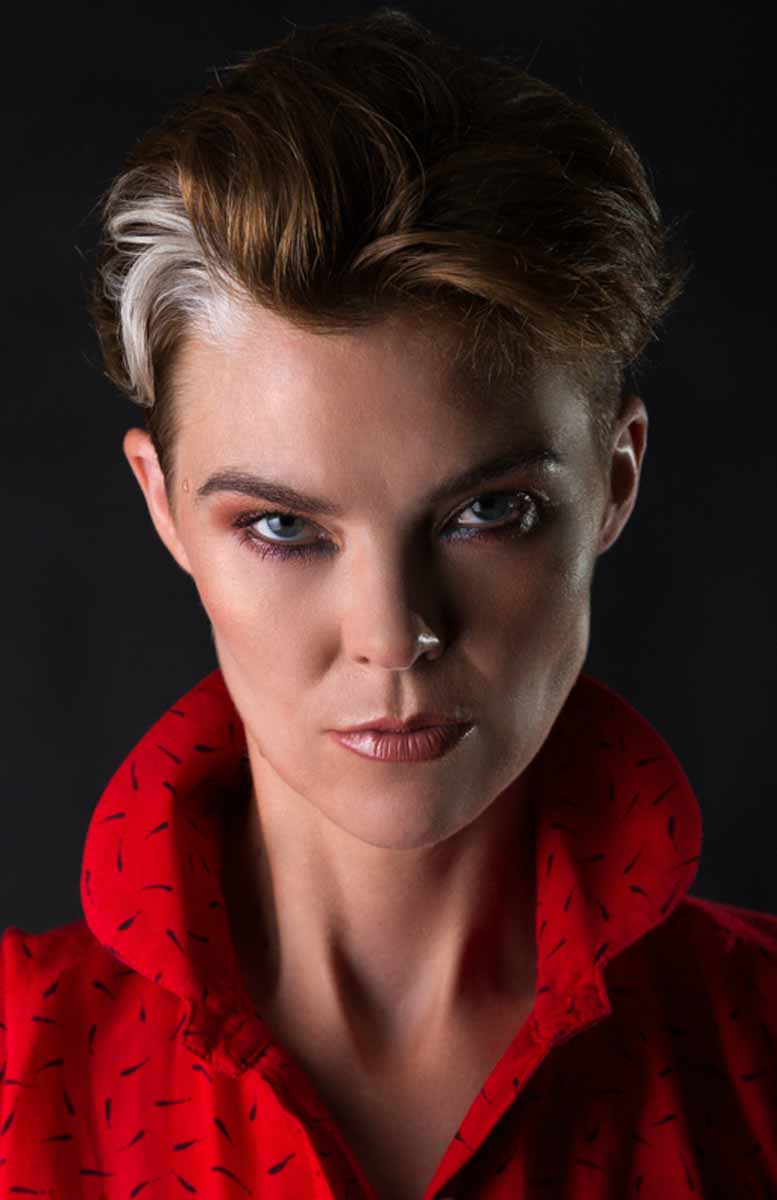
FF: Are you working on any other writing at the moment?
LM: I’ve started something, but it’s very hard with two kids. This is one of the first times I actually have a babysitter. I don’t necessarily want them playing inside because of the situation in the world, so they go out to the big yard, the yard being Central Park. I really don’t have too much time to write, but I’ve started working on another kind of vigilante styled women coming back and saving the world kind of thing.
FF: Oh, awesome.
LM: Again, very dark, just a dystopia kind of?
FF: Cool. What would you say that your brand is quite feisty women based?
LM: Yeah, I like the dark stuff. I’m a fan of a lot of stillness and not so much dialogue, when you choose not to say something, and you can have a comfortable moment with somebody. You don’t need to, there’s so many films that I see it, a lot of the time I find that the dialogue is written for the sake of the audience – kind of just giving information to help the story along so that the audience can understand. But in reality, there is no audience. So why would you come up to your brother and say, ‘Oh, my brother, how are you?’ You might, but if I see my brother, I’m not gonna call him my brother.
FF: It’s about showing rather than telling, there are ways to show those relationships without explicitly saying what they are.
Budgeting, fundraising and crowdfunding – not the fun part of filmmaking
So in terms of budget for your film, how did you go about raising a budget? Was it something that you completely self funded? Or did you need some help?
LM: No, I never want to do fundraising again. I don’t know if you have this on your phone, where it tells you how much your your screen time has gone up? It was like your screen time has gone up 98%. I did a whole campaign through Indiegogo and managed to raise $18,000. I’m not somebody who likes to ask for things from people, I’ve always kind of grown up being taught ‘You want something? Go work hard, you’ve got to do it yourself’. But then I had someone tell me, ‘If you’re not going to do it, other people are and their projects will be funded. So you have to do it.’
So I did it. Then with that too, even on top of that, you forget about things like entering into festivals, it just all costs. Then post-production, you have burning CDs, and it’s just all extra extra extra extra. In the United States, we get tax returns. We used our tax return dollars and personally funded another $10,000. My family is in Canada and my husband’s family is in Poland and we spoke to our families and we said ‘Look, we’re not going to Canada or Poland this year, for the family to afford to fly to Warsaw is a good chunk of cash.’
So instead of doing that, they would maybe come visit us and we used that money towards the film. I didn’t want to pinch on the budget. I wanted to pay my actors. I don’t know if you’re the same, I end up spending money on it because I’m hiring babysitters. That’s my life, but I didn’t want that to happen. And I wanted everyone to be professional and considered professional.
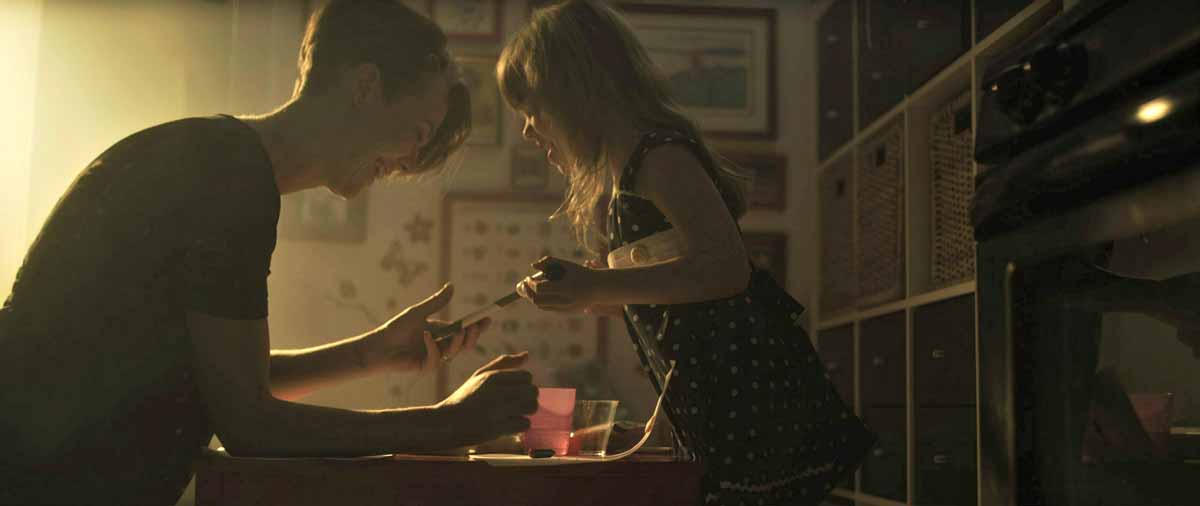
FF: I completely agree. I think it’s very hard for indie filmmakers a lot of the time to pay actors, and it’s a shame because sometimes either the actor suffers, or the calibre of the film suffers. People don’t take it seriously. So you’ll have people walk out real quick, much easier, and cause more problems. I’ve been in all kinds of messy situations with unpaid productions, back in the beginning, and I just think that things are always much smoother when you’re paying people what they should be paid, so it’s great to hear that you made sure that you did that.
LM: I definitely wanted to, and instead of having pizza I would make a crock pot. Everybody’s got home cooking.
FF: Good. As long as you’re feeding them that’s the thing. I don’t know about you but I’d rather have a crock pot of food than a pizza anyway, personally.
LM: I love pizza but there’s only so much pizza you can give.
FF: In terms of budget you crowdfunded the majority of your budget, and then you also added on for all of the post-production and everything like that. And what about marketing? Because obviously, with crowdfunding, you’ll have developed some audience there anyway, if you’ve raised $18,000, then that is one of the side benefits I think of crowdfunding, because you have an audience before you even make the film. So what else did you do in terms of marketing? And how did you keep up with people?
LM: Just being constant and just always having a presence and then always celebrating things that would come.
FF: Last piece of advice would be what would you say to mothers who are trying to balance being an actor or a writer or director, anything in the creative industries while still being a parent?
LM: It’s all about time management, and drive. If you really, really, really, really want to do it… it’s not easy, it’s exhausting. When it came to the crowdfunding I would put the kids together, get them to bed and I would really only start the next shift I would call it at nine o’clock at night and then I would give myself till midnight and that was it. And I said, ‘Look, it’s time to go to bed.’
It’s planning out your day so you know, ‘Oh, baby sleeping, I have an hour and a half right here nap. Okay, let’s pre plan and do the work before what am I going to do? What goal Am I going to set? I want to get to this part of the script if I can.’ Then just turning off your phone and just putting on the blinders and power! Ploughing through with absolute focus. That’s the only way that I was able to do it. That and not sleeping so much!
Credits
Transcription & Editor: Ben Kelly
Video Editor: Andrew Walker
Second Video Editor, VFX & Artwork: Richard Williams
Scottish Tunisian actress. Yes, that's a thing. BAME. POC.
Writer and editor from the north of Scotland, lifelong movie enthusiast. Always looking for an unseen classic, watching something new every day.
Andrew Walker
I own this thing. Being creative makes me tick. Film lover. Coffee hater. Website manager, headline and copywriter, video editor, graphic/motion designer, editor, presenter...





